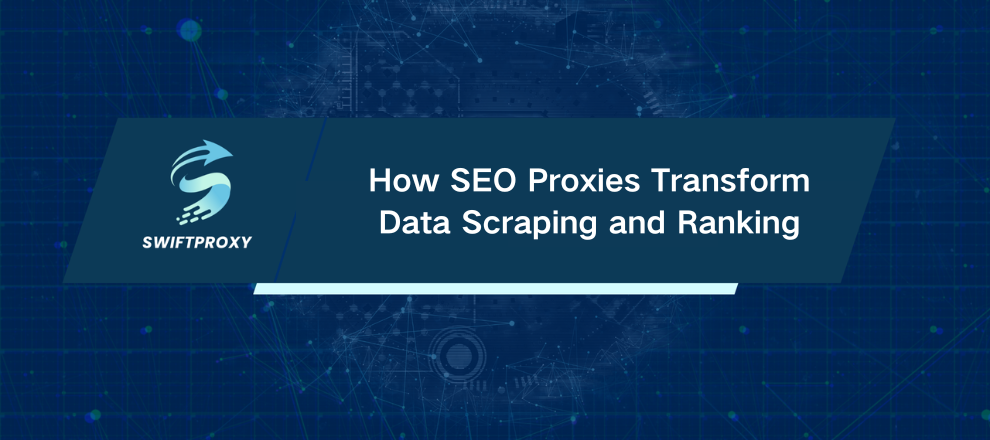How SEO Proxies Transform Data Scraping and Ranking

Search engines don't just serve up results—they guard them fiercely. When you try to gather large volumes of data from Google or Bing, you'll quickly hit walls: blocks, CAPTCHAs, or throttled connections. That's why proxies aren't just nice-to-have tools for SEO—they're essential. They let you scrape search results smoothly, keep your IP safe, and scale your data game without breaking a sweat.
What's the Deal with SEO Proxies
Imagine sending thousands of search requests to Google from your laptop. Too many, too fast, and Google flags your IP as suspicious. The consequence? You get blocked or slowed down. SEO proxies act as your disguise. They mask your real IP with a pool of fresh addresses, spreading out requests so search engines see many “users” instead of one overactive bot.
Here's how it works:
Your SEO tool sends a request.
The request routes through a proxy server.
The proxy forwards it to Google.
The results bounce back through the proxy—your real IP stays hidden.
Simple, but game-changing.
Why SEO Proxies Are a Must
SEO today lives on data. You need timely, accurate insights about rankings, competitors, and localized search trends. Without proxies, you're running into walls.
Massive SERP scraping without getting blocked
Want to track thousands of keywords or spy on your competitors? Proxies let you scrape data continuously, so you don't miss a beat.
Real local search results, anywhere
Google personalizes results by location. To see what a searcher in Tokyo or Berlin sees, you need IPs from those regions. Proxies provide exactly that—unlocking true geo-targeted SEO insights.
Bypass IP bans and rate limits
Google limits how many queries can come from a single IP. Proxies rotate your IPs, making your traffic look natural and avoiding throttling.
Automate rank tracking and analysis
Tools running thousands of automated checks need proxies to keep running smoothly, avoiding CAPTCHAs and downtime.
What Types of Proxies Should You Use
Residential proxies: Real devices connected to home ISPs. Harder to detect, great for geo-targeting, but pricier. Ideal for competitive SERP scraping and regional SEO.
Datacenter proxies: Cloud-based, super fast, more affordable, but easier to flag. Best for bulk scraping and automated rank checks where location isn't critical.
Mobile proxies: Connected via mobile networks, offering the highest anonymity. Perfect for mobile SEO testing and stealthy scraping.
Picking the Right Proxy Provider
Not all proxies are made equal. Here's what matters when choosing a partner:
Speed & reliability: Slow proxies kill efficiency. Look for providers with low latency and stable connections.
High success rate: You want proxies that consistently avoid blocks and CAPTCHAs.
Smart IP rotation: Customizable rotation and sticky sessions keep your scraping smooth and undetectable.
Diverse IP pool: Millions of IPs across cities and countries boost your geo-targeting options.
Responsive support: When things go sideways, quick and knowledgeable help saves your projects.
Tools for Proxy Usage
Proxies fuel the SEO tools you rely on every day:
Rank trackers (SEMrush, Ahrefs): Need proxies to run thousands of queries without caps or blocks.
SERP scrapers: Capture featured snippets, ads, and local packs in real-time.
Keyword research tools: Bulk query Google Suggest and other data sources safely.
On-page and technical SEO tools: Crawl competitor sites or audit client websites across different regions.
Local and mobile SEO testing: Simulate user searches by city or mobile device with targeted proxies.
The Bottom Line
Proxies don't just protect your IP—they unlock the scale, precision, and agility your SEO campaigns demand. Invest in the right proxy setup, and watch your data—and your rankings—reach new heights.

















































